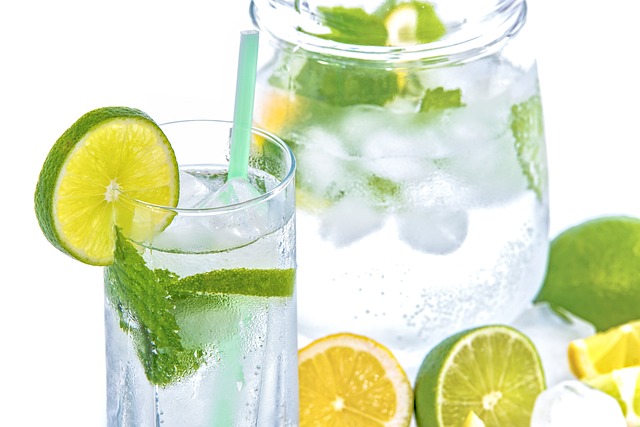Cold plunges, brief exposures to extreme cold, stimulate the immune system by activating stress hormones, enhancing white blood cell production, and triggering cellular repair mechanisms. This natural method boosts immunity, similar to exercise-induced stress, through vasoconstriction and increased norepinephrine levels. Research supports these benefits, showing improved activity in natural killer cells and enhanced phagocytosis. Incorporating gradual, safe cold plunges into your routine can significantly strengthen your immune system while reaping practical health advantages.
The science behind cold plunges reveals a powerful tool for boosting your immune system. This practice, involving brief exposure to cold water, triggers a cascade of defensive responses in your body. In this article, we’ll explore the basic concept and mechanism of cold plunges, delve into their impact on the immune system, uncover scientific evidence supporting their benefits, and provide practical considerations and safety tips for incorporating this effective immune-boosting technique into your routine. Discover how cold plunges can fortify your defenses naturally.
Understanding Cold Plunges: The Basic Concept and Mechanism
Cold plunges, a practice involving brief exposure to extremely cold temperatures, have gained attention for their potential health benefits, particularly in boosting the immune system. The basic concept is straightforward: individuals immerse themselves in cold water, often ice baths or cold showers, for a short period, typically lasting from a few minutes to an extended duration of up to 15-20 minutes. This practice is believed to stimulate various physiological responses that contribute to enhanced immunity.
The mechanism behind this process involves the activation of the sympathetic nervous system, which initiates a series of reactions in the body. Cold exposure triggers the release of stress hormones like adrenaline and noradrenaline, increasing heart rate and blood flow. This surge of activity stimulates the immune cells, enhancing their surveillance and defensive capabilities. Additionally, cold plunges may induce mild cellular stress, similar to exercise-induced stress, which can activate cellular repair mechanisms and strengthen overall immune function.
The Impact on the Immune System: How Cold Water Stimulates Defense Responses
Cold water plunges, a practice that involves briefly immersing oneself in cold water, have gained attention for their potential to stimulate and enhance the immune system. When the body is exposed to cold, it triggers a series of physiological responses designed to protect against infection. One key mechanism is the increase in norepinephrine levels, a hormone that prepares the body for ‘fight or flight’ situations by activating various defense systems. This includes boosting white blood cell production and circulation, which are crucial for identifying and neutralizing pathogens.
Additionally, cold water stimulates vasoconstriction, where blood vessels narrow temporarily to conserve core body temperature. This process helps prevent excessive heat loss in cold environments but also has immune-boosting effects. By limiting the flow of ‘warm’ blood to the skin’s surface, it traps immune cells and antibodies closer to potential infection sites, ensuring a faster response. These defense responses, when combined, contribute to the perceived benefits of cold plunges for strengthening the immune system against various health challenges.
Scientific Evidence: Research Findings on Cold Therapy and Immune Boosting
Research has shown that cold therapy, including cold plunges, can have significant effects on the human body’s response to stress and infection. One key area of interest is its impact on the immune system. Numerous studies suggest that short-term exposure to extreme cold temperatures can stimulate a robust immune response. This activation involves various cellular mechanisms, leading to increased production of white blood cells, which are crucial for fighting off pathogens.
A 2018 review published in the Journal of Physiological Anthropology highlights several clinical trials demonstrating improved immune function after cold exposure. These findings indicate that cold plunges or even just cooling interventions can boost natural killer cell activity, enhance phagocytosis (a process where cells engulf and destroy foreign invaders), and stimulate the release of cytokines, powerful signaling molecules in the body’s inflammatory response. Such evidence underscores the potential benefits of cold therapy as a natural way to fortify the immune system against various diseases.
Practical Considerations and Safety Tips for Incorporating Cold Plunges into Your Routine
Incorporating cold plunges, or immersing yourself in cold water, into your routine can be a game-changer for enhancing your immune system’s response. Before you dive in, consider practical aspects and safety measures to ensure maximum benefits. Temperature shock from cold exposure stimulates various physiological processes that have been linked to improved immunity.
When you subject your body to cold, it initiates a series of reactions: blood vessels constrict, heart rate lowers, and metabolism increases. These responses help regulate inflammation and strengthen the immune system’s surveillance capabilities. However, safety is paramount. Start with brief, controlled exposures, gradually increasing duration and intensity. Always ensure proper hydration before and after plunging to maintain electrolyte balance. Wear appropriate protective gear in colder environments to prevent prolonged exposure and associated risks.
Cold plunges, a simple yet powerful practice, offer significant benefits for enhancing the immune system. By understanding the science behind this technique and its impact on our body’s defense mechanisms, we can unlock the potential to strengthen our natural immunity. The research highlighted in this article underscores the value of cold therapy as a safe and effective way to stimulate various immune responses. Incorporating cold plunges into your routine may be a game-changer for maintaining overall health and well-being, allowing you to navigate seasonal changes with a robust immune system.
